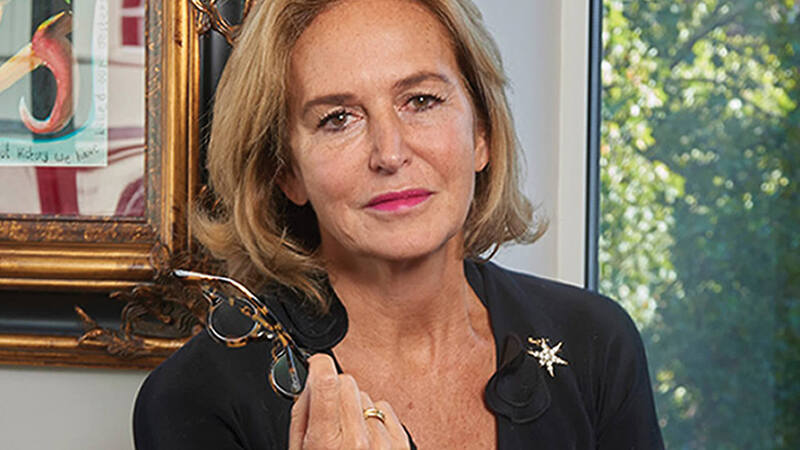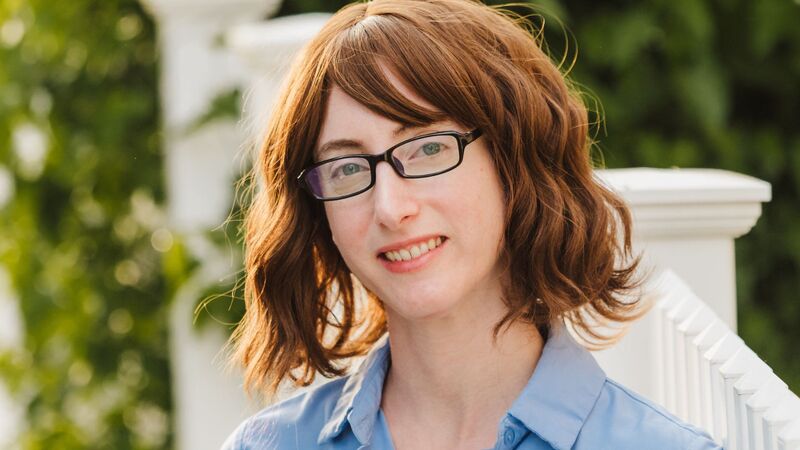You are viewing your 1 free article this month. Login to read more articles.
Edna O’Brien wins David Cohen Prize for 'moving mountains both politically and lyrically'
Eighty-eight-year-old Irish author Edna O’Brien has won the £40,000 David Cohen Prize for Literature for having “broken down social and sexual barriers for women in Ireland and beyond and moved mountains both politically and lyrically through her writing”.
The award was announced on Tuesday evening (26th November) at the Royal Institute of British Architects, London.
Edna O’Brien is a novelist, memoirist, playwright, poet and short story writer with a career spanning more than half a century. Her most recent novel, Girl (Faber), was published in September.
Organisers of David Cohen Prize for Literature said she was recognised for having “broken down social and sexual barriers for women in Ireland and beyond and moved mountains both politically and lyrically through her writing”.
“For over 55 years, Edna O’Brien has lived in the literary spotlight,” the organisers said. “Her lyrical storytelling has excelled in capturing the fragility and pain of the human condition. Born and raised in a small village in County Clare, her first and highly successful novel, The Country Girls, was banned and even incurred a burning in the grounds of her local chapel when it was first published in 1960. Since then she has written over 20 novels (including most recently Girl), over five works of drama and four works of non-fiction including her memoir, Country Girl. The Country Girls Trilogy was chosen as Dublin’s ‘One City One Book’ in 2019.” Her most recent novel, Girl (Faber), was published in September 2019.
O’Brien was nominated and selected by a panel of judges under the chair Mark Lawson, a writer and broadcaster. Fellow judges included writer and film-maker Imtiaz Dharker, journalist and author Viv Groskop as well as journalist Kate Maltby, novelist Jon McGregor, author David Park and journalist and commentator Zoe Strimpel.
Writer and broadcaster Mark Lawson, chair of the judges, said: “In my five experiences of chairing the David Cohen Prize, I have found that a key consideration is the graph of the author’s work. Some writers blaze early, then fade, publishing later books far below their best. In contrast, Edna O’Brien has achieved a rare arc of brilliant consistency, her literary skill, courage, and impact as apparent in a novel published as recently as September as in her first book, which appeared 60 years ago. Although in some ways overdue to a writer of this quality, the 2019 prize is timely because O’Brien’s primary subject has been Ireland, a country that continues to be central to our politics and culture." He added that while the award honours the past, "it is a particular pleasure that it goes this time to an author who is also of such present strength and significance”.
Fellow judge Imtiaz Dharker said: “This is a writer who has extended and enriched our idea of what it is to be human - and to be a woman, kicking against convention. Over a period of almost 60 years, she has brought the interior life of her characters fiercely alive, and the wonder of it is that she is still writing with the same intensity today. I thought I had the course of Edna O’Brien’s work mapped out before the judging came around, and then, towards the end of the process, another great tome dropped through the letter-box, changing the whole terrain. This prize is a celebration, not just of a lifetime’s work, but of a still-burning flame.”
Groskop added: “Edna O’Brien is one of the few writers who can call herself a literary giant of both the 20th and 21st centuries. From the cultural bomb that was The Country Girls in 1960 to the impact of her most recent novel Girl in 2019 via dozens of important novels and short stories and one of the most entertaining memoirs I’ve read in a long while, the depth and breadth of her reach over the last 60 years is obvious."
The David Cohen Prize for Literature is the only prize that is awarded for the body of work. Previous winners who went on to win the Nobel proper are Harold Pinter, V S Naipaul and Doris Lessing with the 2017 prize going to playwright Tom Stoppard. The biennial prize, of £40,000, is for a lifetime’s achievement and is donated by the John S Cohen Foundation. Established in 1965 by David Cohen and his family, the trust supports education, the arts, conservation and the environment. One of the UK's most active cultural philanthropists, Cohen died in August aged 89.
O’Brien went on to award the Clarissa Luard Award to Irish poet Clodagh Beresford Dunne at the same ceremony. This prize was founded in 2005 by Arts Council England, in memory of a literature officer Clarissa Luard. The award is worth £10,000 and the winner of the David Cohen Prize for Literature nominates an emerging writer whose work they wish to support. Clodagh is from Dungarvan, Co. Waterford. Her poems have been published and broadcast internationally. Her poem ‘Seven Sugar Cubes’ was voted Listowel Writers’ Week Irish Poem of the Year at the 2017 Irish Book Awards.















